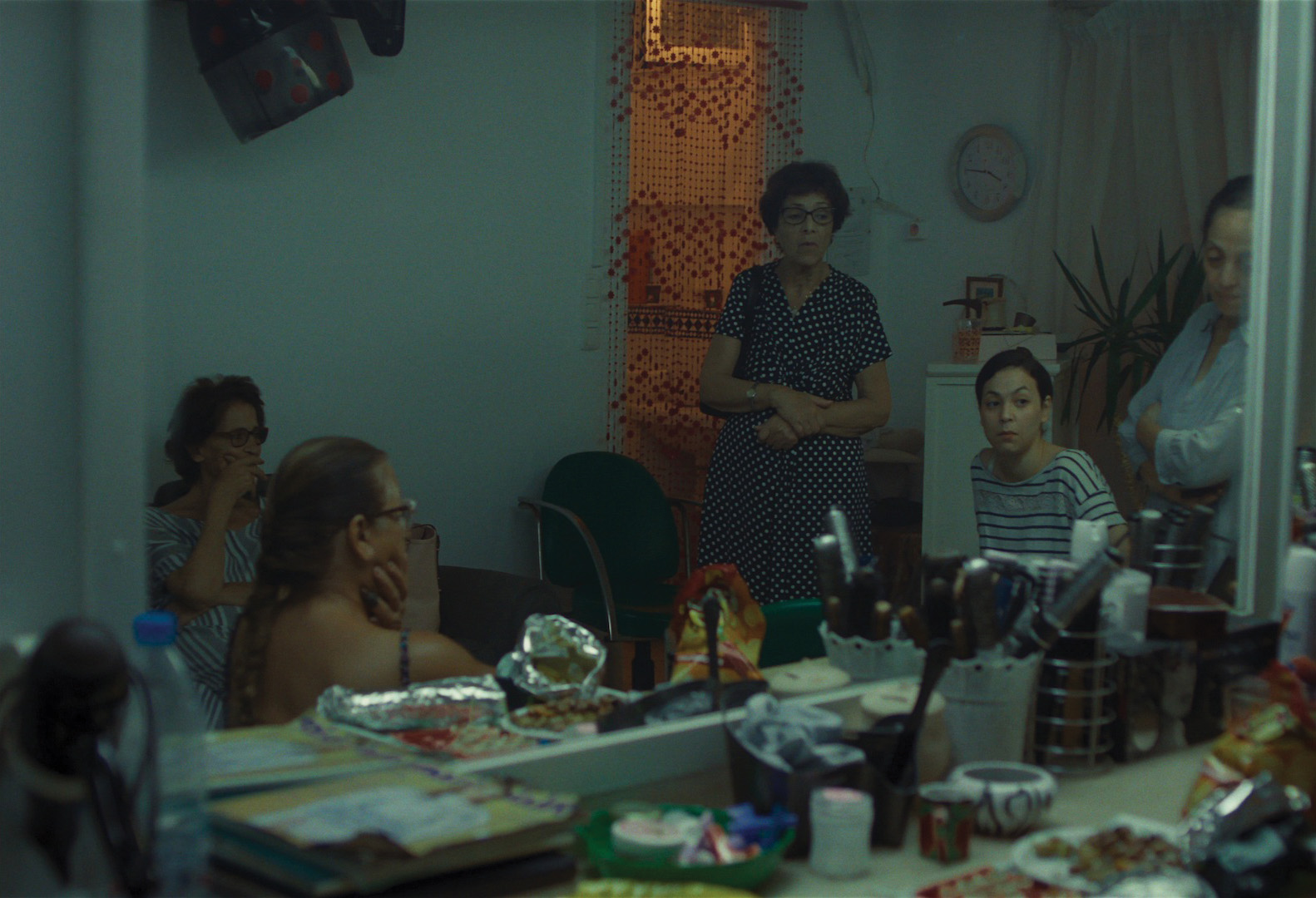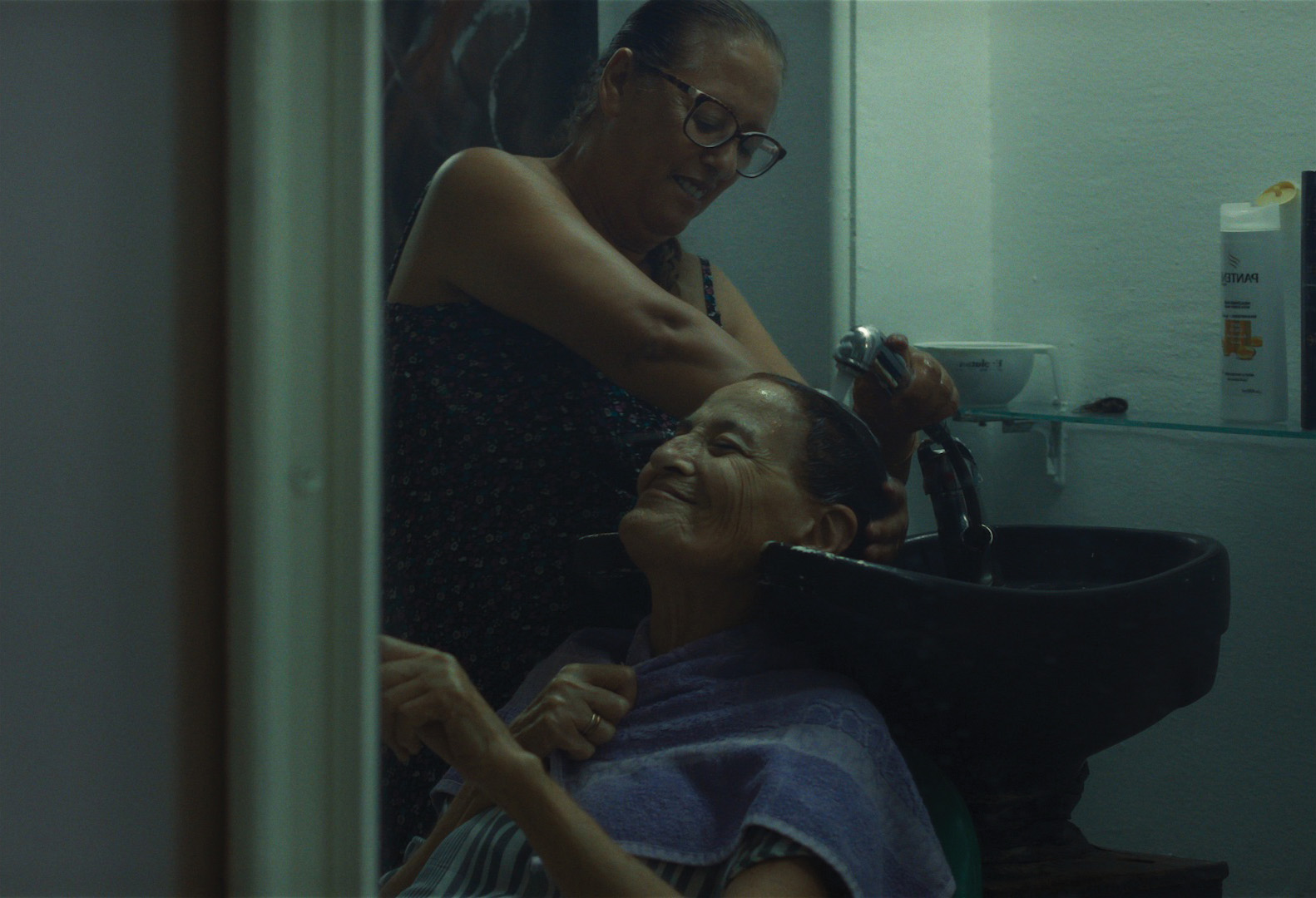Breakfast with Y’a pas d’heure pour les femmes [Ain’t No Time for Women]
Interview with Sarra El Abed, director of Y’a pas d’heure pour les femmes [Ain’t No Time for Women]
How did your film, Y’a pas d’heure pour les femmes, come about?
For a while now, I wanted to describe the status of women in Tunisia which I find rather surprising and contradictory. However it was important for me to present this in an authentic way, or at least , present it the way I learned about it and the way the status of women was revealed to me. As the elections approached, there was a feeling of great fear that the advancement for women and by women would be lost. I wanted to capture the real pulse of the situation. This place where I grew up, and these women were the source of my inspiration, the school of my feminism. Therefore it seemed only natural, moreover obvious, to film in this place. Having spent several afternoons here since the revolution, I knew very well they would talk only about politics and the impact it has on them on a daily basis. I like to examine serious subjects and themes, but I want to do this through real people. Their sense of humor, frankness, and colorfulness makes you want to listen to them and to understand them. There was also a desire to return to my roots, to immortalize my grandmother, a key personality, and a great inspiration. To be an observer, as in my childhood, of these fierce debates between women while they smoke a cigarette and get their hair set in curlers. Because, ultimately, the status of women in Tunisia is, for me, something personal. I spent my childhood promising them I would tell their story and it’s with a bit of this childhood fervor that I shot this film.
In the beauty salon, how did you work with the women so that they would forget the camera’s presence?
We came with our material and the first few days we pretended to shoot so that they would get used to the camera. Since the clientele is more or less the same every day, after 2 or 3 days everyone was used to us being there. Because we quickly became friends, the camera was no longer of any importance and it was like a hairdryer. Surprisingly, it was rather easy to disappear in this décor. There’s also the fact that these women are used to being showy and they are often more at ease being looked at than not.
One of the strong points of the documentary is presenting different points of view. Was it important for you to show the disagreements, the generational differences, and the political orientation of these women?
Absolutely, it was one the most important elements of the film. First of all, that proves that there are diverse opinions, and that people are able to think for themselves. Contrary to other countries which have endured dictatorships, it is interesting to see the abundance of opinions that stem from the population. In making this film, the importance wasn’t to say that one politician prevails over another, or that one regime is better, but rather to show that women are educated, they have opinions and make them known, but also that the status of women is a battle they are not ready to lose. People have lots of prejudices regarding Arab women. Having emigrated to Quebec when I was young, I often had to correct nonsense people would say about Muslim women. Presenting this diversity of women enables us to dismantle these stereotypes. The diversity allows us to see the evolution and the important changes the country has undergone by simply hearing the differences in the discussion between generations.
How did the making of the documentary go — from writing to post-production?
It’s a very personal film and was made with colleagues who are also close friends. It’s a foray into a place but also into my childhood and my relationship with the women of my family. All of the participants were almost as eager for its success as I was. The work was grueling and sometimes complicated, but the familiarity of the process often made us forget that we were working. The writing and the filming were an opportunity to plunge into the history of my country and its daily life which I usually only encounter during long vacations, and to share this with my crew. Post-production was the most difficult part. Lots of content, ideas, a notorious cacophony, a brain teaser that was often hard but enjoyable to work out.
What do you think the future holds for short films?
I think it’s a format that will gain in importance in the coming years. With digital platforms and the speed at which we live, the short film has become a format of choice that no longer is limited to cinema buffs. There are, I believe, subjects and themes that are much more interesting to address in the short format and there’s a certain liberty that goes with that.
If we were to go back into lockdown, what cultural or artistic delights would you recommend for alleviating our boredom?
Lately I’ve been trying to be lighter. Music. Lots and lots of music of all kinds. I also lose myself by watching lots of comedy shows; laughing is good for you in times like these; it’s my preferred remedy. And radio. I fell back in love with the radio in the last few months, I love its freedom. And mostly, to challenge my imagination to picture what I’m hearing.
Y’a pas d’heure pour les femmes [Ain’t No Time for Women] is being shown in the International Competition I7.










